News + Media
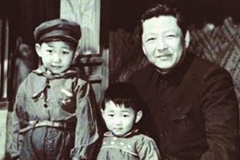 |
In the NewsNovember 2, 2020Power, the party, and the president: Xi's revolutionary pastChina and the WorldTo discuss how Xi’s revolutionary past is shaping China’s future, we’re joined by the Chinawatchers' Chinawatchers, Frederick Teiwes from the University of Sydney and Joseph Torigian from American University in Washington DC. |
 |
In the NewsOctober 30, 2020Democracy in distress?Peter DizikesMIT NewsExperts analyze a global trend: democratic governments that collapse from within while maintaining a veneer of legitimacy. |
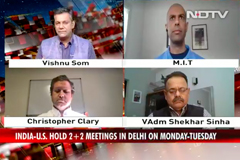 |
In the NewsOctober 26, 2020China spread virus, India gave fitting reply — Aaj Tak, News18 looks for Chinese army in NoidaBismee Taskin and Taran DeolThe PrintVipin Narang quoted: “Foundational agreements between India and the US have been a long time coming. They are essentially agreements that set up parameters for cooperation, they don’t specify the modalities or details of the cooperation,” said Vipin Narang, MIT Associate Professor, on whether an India-US alliance is in the making. “For about two decades since 2000, India and the United States have slowly started moving closer together and cooperating,” Narang added, cautioning that hyping up the relationship can become harmful. |
 |
In the NewsOctober 23, 2020Universities should lead the way on climate action, MIT panelists sayBecky HamMIT NewsClimate solutions must include more than just advanced science and technology capabilities, said Melissa Nobles, the Kenan Sahin Dean of the School of Humanities, Arts, and Social Sciences, and professor of political science. At MIT, she notes, classes on the ethics of climate change, the J-PAL King Climate Action Initiative, and Charlotte Brathwaite’s “Bee Boy” theater project are some examples of how the social sciences and arts can be brought to bear on climate issues. |
 |
In the NewsOctober 23, 20203 questions with Fotini Christia, the new chair of the Social & Engineering Systems PhD programMIT Institute for Data, Systems, and SocietyFotini Christia is a professor of political science and faculty member of the Institute for Data, Systems, and Society. Her research interests deal with the political economy of conflict and development in the Muslim world and she has done extensive experimental, survey, and big data research on Afghanistan, Bosnia-Herzegovina, Iraq, and Yemen. In addition to chairing the Social & Engineering Systems PhD program, she directs the Sociotechnical Systems Research Center (SSRC) within IDSS. |
 |
Analysis + OpinionOctober 22, 2020Why we can’t be friends with our alliesPatrick Porter, Joshua ShifrinsonPoliticoBy falsely equating alliances with friendships, Biden and his team run serious risks. The rhetoric of friendship obscures the reality of US foreign policy to the American people. |
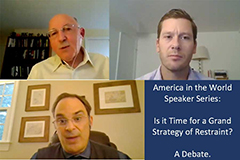 |
Analysis + OpinionOctober 21, 2020Is it time for a grand strategy of restraint? A debateJohns Hopkins | Kissinger Center for Global AffairBarry Posen and Michael Mazarr layout their cases in opposing sides to this debate on whether the United States should embrace a grand stragy of restraint or not. |
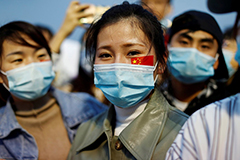 |
Analysis + OpinionOctober 20, 2020Understanding US-China strategic competitionDetermining the right prescription for how the United States should respond to strategic competition with China depends on having the right diagnosis of the problem, writes former Robert E Wilhelm Fellow Paul Heer. |
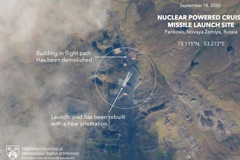 |
In the NewsOctober 20, 2020Satellite images indicate Russia is preparing to resume testing its nuclear-powered cruise missileZachary CohenCNNVipin Narang quoted: “A nuclear powered cruise missile gives a low-flying, radar-evading, nuclear-capable missile intergalactic range that can pose a challenge to national missile defenses,” he told CNN, adding that indications Russia may be preparing another test show “how much our missile defenses drive their developments and how scared they are of them, not today, but tomorrow.” They are also highly controversial “because it's crazy to put an unshielded nuclear reactor on a missile to power it,” Narang added, noting that the consequences of testing this type of weapon can be catastrophic if something goes wrong. |
 |
News@E40October 19, 2020MISTI global seed funds program supports global engagementMISTI Global Seed Funds program enables participating teams to collaborate with international peers, either at MIT or abroad, with the aim of developing and launching joint research projects. The GSF application cycle is now open with a deadline of December 14, 2020. |



